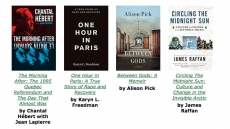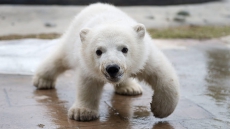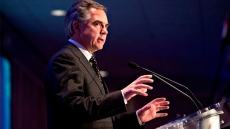TORONTO — The dawn of a new era between the United States and Cuba is poised to spell the end of a golden age for Canadian tourists, experts said Wednesday.
Snowbirds anxious for an escape to a tropical paradise have long been fleeing to Cuba while their American counterparts have been kept off the island's shores by a diplomatic and travel ban dating back more than five decades.
But now that U.S. President Barack Obama has announced plans to re-establish diplomatic ties with the country, experts are anticipating major changes for Cuba and those who visit the island.
Jury Krytiuk, head of the Cuban travel department at Toronto-area agency A. Nash Travel Inc., says an affordable vacation in a relatively pristine landscape will be harder to come by in the years to come.
Prices will serge as restrictions on American travellers ease, he said, adding Cuba will also have to adjust its tourism infrastructure to accommodate an influx of new visitors.
"There's a limited amount of accommodation, so there's going to have to be a lot of hotels built, especially in the cities, to accommodate people who want to visit," Krytiuk said in a telephone interview.
Docking facilities will also be prime targets for expansion, he said, since the island is not currently equipped to house the mammoth cruise ships most commonly used in Caribbean travel, he said.
The result, he said, is that Canadians visiting the island 15 years from now are likely to have a very different experience than those enjoying a vacation there today.
The culture shock stands to impact a significant number of travellers, since Statistics Canada has identified Cuba as the third most popular destination for Canadians going abroad.
In 2012, StatsCan said more than a million people travelled to the communist-run island and poured approximately $748 million into the local tourism industry.
But politicians and pundits alike predict new conditions won't be felt on the island for some time.
Prime Minister Stephen Harper told the CBC that change likely won't manifest itself in Cuba until "the current generation passes."
Arch Ritter, a Carleton University economics professor who specializes in studying Cuba, agrees.
While Wednesday's announcement eases restrictions on Cuban Americans wishing to return home for family visits and makes business travel much simpler, general tourism to the island is still banned.
The Canadian travel experience to Cuba may not change too drastically until those restrictions are lifted, but Ritter anticipates some negative effects once the tourism floodgates are fully open.
"When full normalization occurs, when American tourists can travel to Cuba, there's going to be a tsunami of curiosity tourism," Ritter said. ". . . That probably will push up the costs of tourism substantially, and Canadian tourists may be squeezed."
Krytiuk says Cuba is no stranger to waves of international tourists.
Major travel companies, such as Spanish hotel provider Melia, have already established a strong presence on the island.
Krytiuk says it's already begun playing host to American tourists determined to explore their formerly forbidden neighbour through roundabout routes, adding he has personally booked several trips for U.S. customers who choose to fly to Cuba via Canadian airports.
But Krytiuk hopes the growing wave of interest doesn't leave too plain a mark on Cuba's cultural heritage, which he describes as a tourist attraction of its own.
Cuba's athletic, artistic and linguistic traditions have combined to make it a unique destination, he said, adding the island also appeals to those in search of a vacation focused on nature-oriented pursuits such as birdwatching or fishing.
The influx of American tourism may change the physical landscape, but Krytiuk is optimistic the cultural one will be largely unscathed.
"Cuba has a culture and a flavour that is unique unto itself. They are proud people, and they're going to want to retain that culture."





